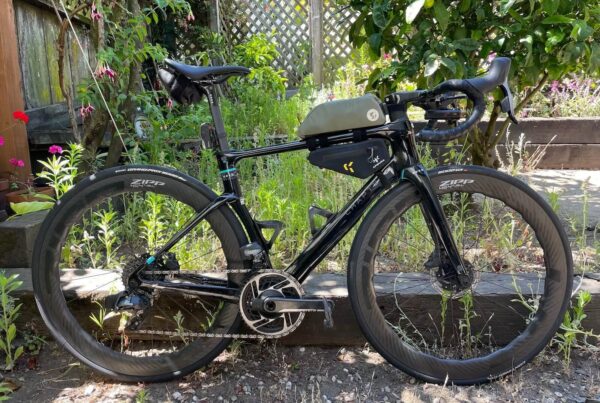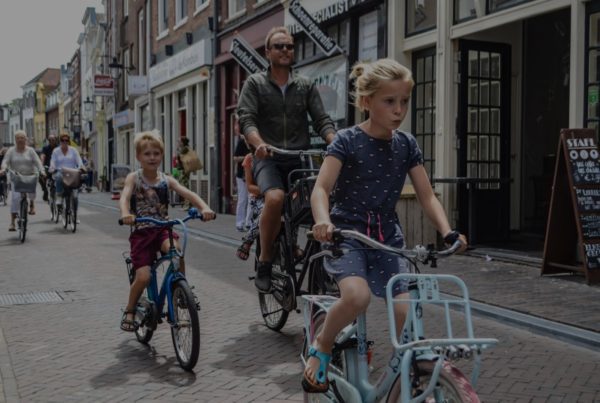We talked with the experts on the front lines of bicycle advocacy. Here’s what they have to say about getting an Idaho-style stop as yield law passed in your state.
By Bob Mionske
Andy Clarke, President, League of American Bicyclists :
(• First, connect with your state (or local) advocacy group – any initiative to change state law needs the support of people from across the state, and the chances are good they already know sympathetic lawmakers to help get you started. Many have a track record of getting laws passed.
• Second, have realistic expectations going into the effort. State laws don’t usually get passed at the first time of asking, and the legislative process never respects logic or timeliness.
• Third, do your homework on the issue, likely objections, possible supporters and detractors. Look for support from both Democrat and Republican lawmakers, and try to find a champion who is on a committee in the legislature with jurisdiction over your issue.
• Fourth, watchdog the progress of your bill like a hawk. If you have the wherewithal to hire a lobbyist, this is where they earn their keep. You never know when a bill will move, or get stuck, or be debated, or what seemingly unconnected political machinations will unfold to which your proposal will be held hostage.
• Finally, make it easy for people to support your initiative. Keep people informed, provide fact sheets, scripts for telephone calls, background documents for legislators, and try to be strategic in your timing for when you get a lot of people to call or write the legislature or when you ask a few well-placed allies to make a call or visit on your behalf. The League’s on-line advocacy center has a lot of advice along these lines, as well as direct access to state legislators and state agency heads and examples of ongoing campaigns you can copy.
Scott Bricker, Executive Director, Bicycle Transportation Alliance:
• Perhaps most importantly, the Idaho Stop law is one element of a fundamental shift we need to make—to truly recognize that bicycles are different vehicles than cars. We need to move away from “same roads, same rights, same rules,” and more towards “different” or “special” rights, rules, and ultimately, roads. This approach would incorporate the use of yield signs, not stops signs, for bikes as one component of this fundamental shift.
Andy Thornley, Program Director, San Francisco Bicycle Coalition 🙁
Locally, the San Francisco Bicycle Coalition would rather focus on enforcing laws that endanger the most vulnerable users, including when the violator is a cyclist. In a letter to San Francisco Police Department Chief Fong, we referred to these violations as “right-of-way theft”:
Not only do many bicyclist and pedestrian injuries and fatalities result from failure to yield right-of-way, but rampant uncited “right-of-way theft” by all road users (including bicyclists) nurtures a perception of anarchy and permissiveness, that “anything goes” on the streets, which in turn gives license to further misbehavior, ranging from simply discourteous to gravely dangerous. Motorists must take their turn and give way to bicyclists and pedestrians at intersections before turning, instead of bullying their way (consciously or distractedly) through the turn. Likewise, bicyclists must take their turn and yield the right-of-way to all users as appropriate, stopping for pedestrians and motorists and other cyclists alike.
It’s our position that if we really want an Idaho-style intersection protocol, we should start with the laws we already have and prioritize enforcement in our hometowns to achieve the traffic environment we desire.
• Step 1: Re-establish the concepts of “right of way” and “yield”: In San Francisco, at least, these essential concepts are largely lost, from decades of overly tolerant enforcement and overly selfish roadway users. We all grew up understanding “take your turn.”
• Step 2: Establish enforcement priorities for street safety: After obvious top-tier offenses like excessive speed and DUI, “failure to yield” and “unsafe merge” enforcement should be a high enforcement priority, especially at intersections, for the safety of pedestrians, bicyclists and even motorists. At the same time, “failure to stop” should take decreased priority as an enforcement subject for bicyclists.
• Step 3: Education/fair warning: Public safety and public health and transportation agencies collaborate with bicycle and auto and pedestrian advocates to conduct a public information/outreach campaign, letting everyone know that stealing someone else’s right of way is not just rude, not just dangerous, it could cost you some money. “Take your turn, or get a ticket.”
• Step 4: Start citing “right-of-way thieves”: Get out and write some tickets for roadway users who fail to yield, but only if obvious right-of-way theft has occurred. Spend more time citing motorists than cyclists, and fine cyclists proportionally less than motorists (California localities have the power to set penalty amounts lower for moving violations incurred by bicycle operators). Be consistent and persistent—not just a one-day sting, but an ongoing campaign.
The result: Pushy drivers bullying pedestrians and cyclists less. Pushy cyclists bullying pedestrians (and motorists, even) less. Thoughtful cyclists pausing and continuing at stops when there’s no theft of anyone’s right of way, without fear of citation. Like Idaho, but better.
Research and drafting provided by Rick Bernardi, J.D.
This article, More On Stop as Yield, was originally published on Bicycling on July 31, 2009.



